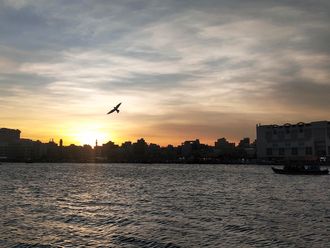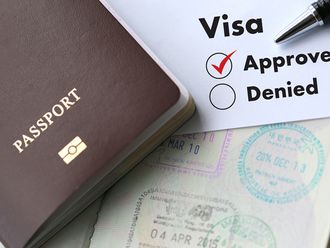Abu Dhabi: The Gulf Cooperation Council (GCC) must adopt a new approach to addressing its security concerns — not just through military defence but also through sustainable development, openness and engagement with the international community, analysts said.
"This is about [a] new approach to security in the early 21st century. It's not about military security. It's also about economic, social, energy, food and environmental security," said Dr Theodore Karasik, director of Research and Development at the Institute for Near East and Gulf Military Analysis (Inegma).
GCC leaders met on Monday in Abu Dhabi, where the prestigious bloc was created almost three decades ago, as security threats surround the region — Iran to the east, Iraq to the north and Yemen to the south.
Karasik, who warned ahead of the summit that the standstill over Iran's nuclear programme threatens to spark a fourth Gulf war that will engulf the region and may drag in Turkey, said although there are many challenges to be addressed, the GCC countries would always be able to protect themselves and their citizens against these emerging threats.
Lack of opportunities
Shaikh Abdullah Bin Zayed Al Nahyan, UAE Foreign Minister, said: "It is my firm belief that the best guarantor of security is sustainable economic and social development."
"Extremism feeds on [a] lack of hope and opportunity, particularly among our youth. And that openness and engagement with the international community is beneficial to everyone's security. Whether through sport or trade, culture or political dialogue, international exchange gives people a shared stake in a positive and peaceful future," Shaikh Abdullah told the IISS Security Dialogue Forum in Manama on Saturday.
Shaikh Abdullah cited Qatar's winning bid to host the World Cup in 2022, which he said could mean that real security goes beyond buffer zones, fences and walls.
He added that openness and engagement with the international community was beneficial to everyone's security.
"Whether through sport or trade, culture or political dialogue, international exchange gives people a shared stake in a positive and peaceful future," Shaikh Abdullah said.
Dr Abdul Rahim Al Shaheen, Associate Professor of Political Science at UAE University, said the aspirations of the citizens of GCC member countries far exceed the achievements of the council.
"To achieve security in the 21st century, the GCC must work to achieve freedom of movement of capital and [the] workforce and harmonise policies and legislation regarding health, education and economy," he said.
Employment creation
"The group must collectively work to create jobs for young people, improve education standards, and face up to food and water security," he added.
"They should also have one powerful voice at international arenas," Al Shaheen said.
Shaikh Abdullah shared this view and said discussions at the summit, in its political dimensions, express the common desire of GCC states to have one audible voice at international forums that delivers the message of stability, peace and development.
Abu Dhabi Commending the kingdom's efforts to combat terrorism, Gulf Cooperation Council (GCC) leaders on Monday said they will stand by Saudi Arabia and the international community in their fight against terrorism.
"We are closely following Sadui Arabia's effort to combat terrorism and while condemning terrorist acts we express support [for] the kingdom and the international community in their fight against terrorism in all its forms," Shaikh Sabah Al Ahmad Al Jaber Al Sabah, Emir of Kuwait, told the opening session of the GCC summit.
Saudi Arabia arrested 149 people from 19 terror cells linked to Al Qaida over the past eight months and foiled attacks against government and security officials.
The attackers were also reported to have been planning to target government facilities.
Foiled plans
The kingdom also foiled plans to attack Saudi oil installations.
A Saudi counter-terrorism drive halted a violent Al Qaida campaign in the Gulf Arab country from 2003-06.
Al Qaida's Yemeni and Saudi wings merged in 2009 into a new group, Al Qaida in the Arabian Peninsula (AQAP), based in Yemen.












